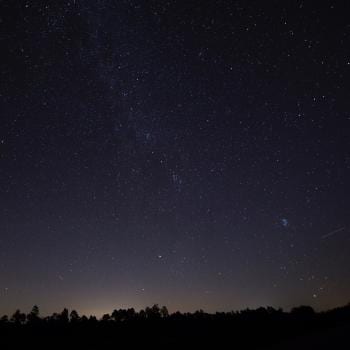 A Response to The Bonhoeffer Reader, edited by Clifford J. Green and Michael P. DeJonge
A Response to The Bonhoeffer Reader, edited by Clifford J. Green and Michael P. DeJonge
Few theologians have responded as creatively and forthrightly to the postmodern challenge as Dietrich Bonhoeffer. Bonhoeffer recognized the pluralistic, multi-centered, experience-oriented world of our current religious landscape. He imagined an emerging Christianity, no longer at the center of culture, but at the margins, and making these same margins the ground of a frontier faith. Postmodernism presented a threat to the old-time religion and Christian supremacy, but also an opportunity to a fluid, agile, and worldly faith.
In the midst of the maelstrom of war, Bonhoeffer saw the eclipse of Christendom and imagined a dynamic, counter-cultural Christian faith of the future. The Bonhoeffer Reader, edited by Clifford J. Green and Michael P. DeJonge not only captures the breadth and evolution of Bonhoeffer’s theology, but gives special care to his final expansive visions of a Christianity big enough to embrace a radically-changing world. From his prison cell, Bonhoeffer saw more than most free-ranging people. He saw, in the words of Bishop John Shelby Spong, that Christianity must change or die. He did not see the future of Jesus’ mission in megachurches, dreams of Christian dominion, or Christian supremacy but in living out the mission of the suffering servant Jesus of Nazareth and the God who celebrates and suffers with us.
Bonhoeffer never had the opportunity to fully articulate his vision of God, but his emerging vision touches the edges of process theology. His vision of God shapes the contours of an interactive, relational, and affirmative Christianity, comfortable with diversity and open to the insights of secularity. According to Bonhoeffer, God “needs” us to achieve the best in our ambiguous world. God is not a “timeless fate” but “waits for and responds to prayer and sincere actions” (769-770). This vision touches process theology’s insight that God evolves with the world: neither God nor the world are complete, but are open-ended. In the spirit of Jewish mysticism, God needs us to be God’s companions in tikkun ‘olam, “mending the world.” The healing of the world requires our participation; there is no preordained end of history or end-time goal or apocalypse, but rather an ongoing process which requires our positive action for God’s vision to be embodied.
God’s vision for us is not timeless but God acts in real time and not in “advance” (769), similar to process thought’s image of God’s vision of possibilities appropriate to each moment. We are given strength, insight, and the resources to achieve God’s aim that all things work out for good. This happens right where we are with all its limitations and opportunities.
The parent of process theology, Alfred North Whitehead describes God as “the fellow sufferer who understands.” Echoing this, Bonhoeffer asserts that humans are called to share in God’s sufferings” (804). Note well, “God’s sufferings.” Only a suffering God can save, a God with skin, who shares our condition and seeks to bring beauty from ugliness and justice from injustice. Jewish spiritual teacher, Abraham Joshua Heschel speaks of the “divine pathos” as being the heart of prophetic religion: God experiences the details of our lives and is truly hurt by injustice; God suffers in the anguish of the vulnerable and dispossessed. God is not apathetic but passionate in God’s care for creation: god is not an Aristotelian “unmoved mover,” but as process philosopher Charles Hartshore claims, the “most moved mover.”
Process theologian, Bernard Loomer described two kinds of power – unilateral and relational. Unilateral power, characteristic of the Christendom that had died in the modern world, described God as determining and knowing everything in advance: the all-powerful God established the powers of the universe, and determined success and failure and life and death. Images of God’s omnipotence inspired and undergirded the unilateral and often oppressive actions of religious institutions and nation states. After all, if we are the chosen servants of an all-determining God, we alone are equipped to shape history, especially as it relates to government, church, and non-Christians and foreigners.
In contrast, a relational God works with the world, creating along with the evolving history of humanity and the non-human world, being subject to our actions as well as shaping our actions. When Bonhoeffer invokes the “powerlessness” of God, he is also speaking of God with us, not as omnipotent, but as the One who suffers with us, who experiences our pain, but also invites us to invest ourselves in the worldliness of a secular world.
Writing in the shadow of the culture Christianity of World War II Germany, Bonhoeffer asserts that you will not find God’s vision in those who identify God and country and advocate national supremacy. Nor, according to Bonhoeffer’s theological vision, will we find God’s vision in the machinations of congressional leaders who demean the poor and underinsured by shutting down government, who traumatize the children of undocumented immigrants by advocating the deportation of their parents, or who see Christ as dominating the political sphere, guiding them to shut down government or default on loans to avoid expanding health care to the vulnerable. While such persons may call themselves Christians, they will truly experience God’s costly grace only when they let go of the power to exclude and welcome the power to embrace the least, the last, and the lost.
Liberals also may live by what Bonhoeffer calls cheap grace, especially as they privilege the middle class and forget the traumas of the dispossessed in order to seek a better day for all. The vulnerable are never expendable, even for a good political cause or for a greater good. God feels the pain caused by conservatives for whom the greatest good is lower taxes, smaller government, and the right to bear arms, and liberals whose liberalism obscures the needs of the least of these to obscure political goals. The truly great society must include everyone and start with the least of these, whose faces reveal the suffering face of Christ.
Much more could be said and of course Green and DeJonge’s Bonhoeffer Reader gives a complete picture of Bonhoeffer’s evolving theology. Nevertheless, the insights of the later Bonhoeffer parallel those of process theology in their respective affirmations of: 1) a God who evolves along with the world, 2) a God whose power is limited by the world, 3) a God who is touched by our pain, 4) a God who needs our best efforts to secure God’s vision on earth, and 5) a humanity whose vocation is to become God’s companions in transforming the world so that God’s vision on earth as well as heaven be realized.
For more conversation on The Bonhoeffer Reader, visit the Patheos Book Club here.













